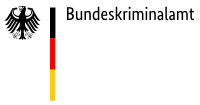
The BKA observes developments in crime, compiles criminal police analyses and statistics and creates police methods and working methods aimed at the suppression of crime.
The police crime statistics for the Federal Republic of Germany are compiled by the BKA. They are published annually in book form during the second half of the year. Most copies are made available to police and judicial authorities, but also - for example - to universities.
The Bundeskriminalamt police crime statistics yearbooks dating back to 1997 and the corresponding tables of time-series data beginning in 1987 can be viewed on the BKA homepage. Unlawful (criminal) acts known to the police, including attempts subject to punishment, the number of suspects identified and a wide range of further data on cases, victims or suspects are included in the police crime statistics. Breaches of regulations, crimes against state security and road traffic offences are not included in this publication. In the police crime statistics for the Federal Republic of Germany, the data provided by the 16 State Criminal Police Offices is presented in the form of tables and graphics along with a commentary.
In 2005, 6,391,718 cases were recorded in the Federal Republic of Germany. Compared to the previous year, this represents a decrease of 241,438 cases or 3,6 per cent. Although the number of cases of theft has decreased continuously in recent years, theft still dominates the overall crime statistics constituting an approximate 43% proportion. On average, about half of all crimes are solved, but the clear-up rate varies greatly between the individual areas of crime. The clear-up rate for breaking into and stealing from cars is about 9 per cent, for murder and manslaughter, however, 96 per cent.
Many criminology and criminal research projects conducted at the BKA address current or fundamental police problems. The results are published and made accessible to the police offices and/or police basic and advanced training centres. Apart from this, the scientific advice and support for the federal and state police agencies is of particular importance in concrete, significant problem areas connected with crime control strategy. Thus, themes are analysed within the context of regular interdisciplinary project work which could impact on future police work. The goal is to identify developments at an early stage and to identify approaches for reactions. The BKA supports the police offices in charge, but also at a concrete level, in the clearing up of serious offences, for example, by compiling case analyses and perpetrator profiles.
The observation of the developments in the area of crime prevention in Germany and abroad as well as the utilisation of new information are just as much part of the task framework as the drawing up of expert opinions and statements on draft bills or general legal issues of relevance for the police. The institution of a unit for the collection of legal facts which, through collecting, analysing and reporting, serves the goal of providing the legislator with a basis for decisions on legal policy and facilitating an evaluation of the effectiveness of existing laws.
